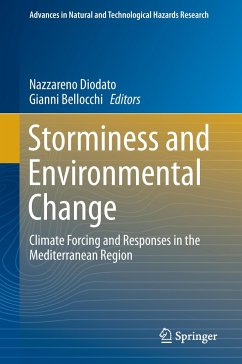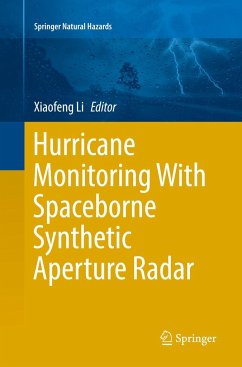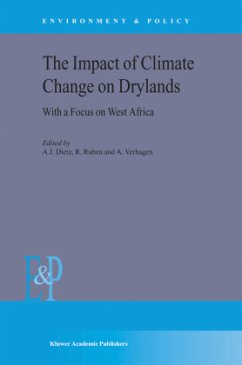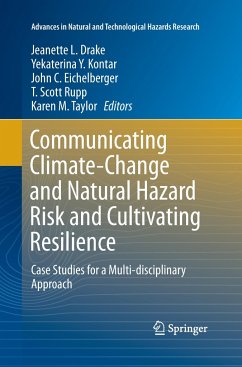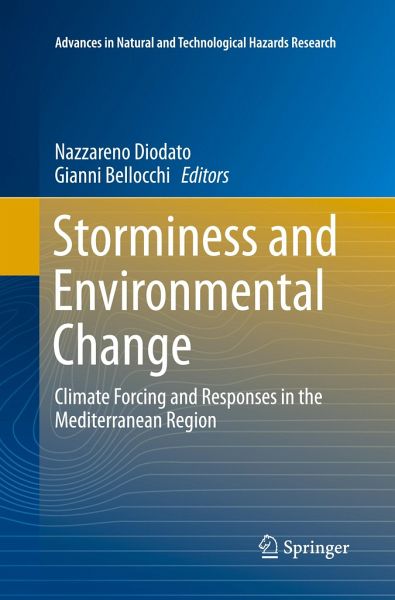
Storminess and Environmental Change
Climate Forcing and Responses in the Mediterranean Region
Herausgegeben: Diodato, Nazzareno; Bellocchi, Gianni
Versandkostenfrei!
Versandfertig in 6-10 Tagen
76,99 €
inkl. MwSt.

PAYBACK Punkte
38 °P sammeln!
This book describes recent developments in the modeling of hydro-climatological processes in time and space. The topic brings together a wide range of disciplines, such as climatology, hydrology, geomorphology and ecology, with examples of problems and related modeling approaches. Parsimonious hydro-climatological models hold the potential to simulate the combined effects of rainfall intensity and distribution patterns in the absence of precipitation records for short time intervals (e.g. daily to sub-hourly) and over large areas (e.g. regional to continental). In this book, we show how the pr...
This book describes recent developments in the modeling of hydro-climatological processes in time and space. The topic brings together a wide range of disciplines, such as climatology, hydrology, geomorphology and ecology, with examples of problems and related modeling approaches. Parsimonious hydro-climatological models hold the potential to simulate the combined effects of rainfall intensity and distribution patterns in the absence of precipitation records for short time intervals (e.g. daily to sub-hourly) and over large areas (e.g. regional to continental). In this book, we show how the principle of parsimony can be followed without sacrificing depth in seeking to understand a variety of landscape and surface processes that include hydrologic phenomena. Geographically speaking, the focus of the book is on Mediterranean environments. In this region, which is characterized by a complex morphology, soil erosion by water is a major cause of landscape degradation and the fragility of ecosystems is abundantly documented. By exploring interactions between erosive storms and land with the help of modeling solutions created at a variety of scales, the book investigates in detail the climatic implications for the Mediterranean landscape in an effort to bridge historical and contemporary research, which makes it unique in its approach.
The book provides a valuable resource for environmental scientists, while also providing an important basis for graduate and postgraduate students interested in research on hydrological cycles and environmental changes.
The book provides a valuable resource for environmental scientists, while also providing an important basis for graduate and postgraduate students interested in research on hydrological cycles and environmental changes.



